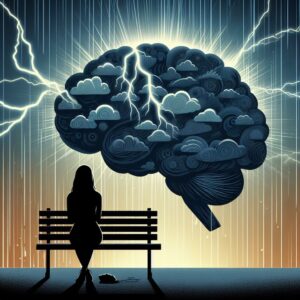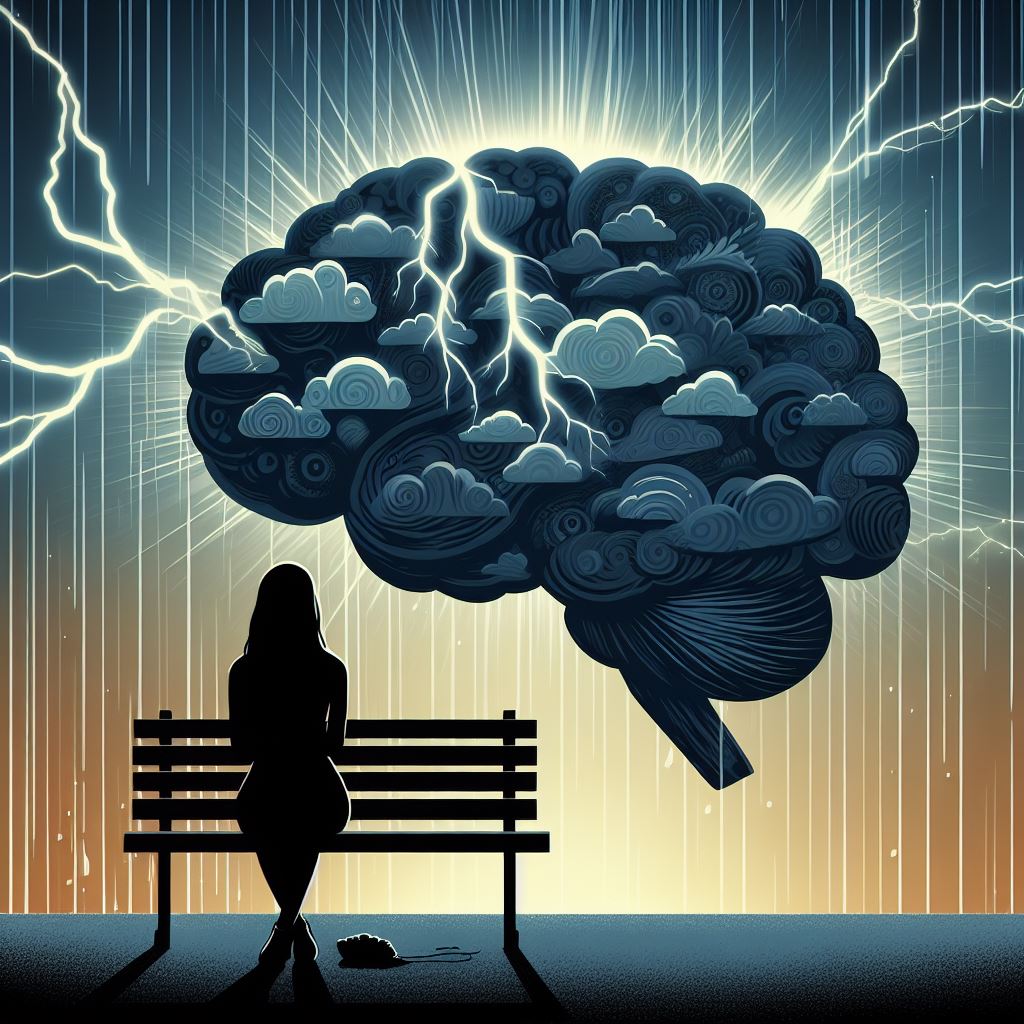Understanding how depression affects brain is the first step toward reclaiming control and rediscovering the sunshine beyond the fog. Have you ever felt like you’re walking through a fog so thick, you can’t see your hands in front of your face?  A fog that dulls your senses, numbs your feelings, and makes everything seems pointless? If so, you might have been grappling with the shadowy hands of depression. It’s like a persistent cloud that refuses to clear, making even the simplest tasks feel like climbing Mount Everest. But, don’t worry. Let’s embark on this enlightening journey together.
A fog that dulls your senses, numbs your feelings, and makes everything seems pointless? If so, you might have been grappling with the shadowy hands of depression. It’s like a persistent cloud that refuses to clear, making even the simplest tasks feel like climbing Mount Everest. But, don’t worry. Let’s embark on this enlightening journey together.
The Brain Under Siege: How Depression Affects Brain
The human brain is a marvel, a complex network of neurons communicating through electrical and chemical signals. But when depression enters the scene, it’s like someone threw a wrench into this finely tuned machine. Here’s how this unwelcome guest makes itself at home:
The Chemical Imbalance Theory
At the heart of the discussion on how depression affects brain is the chemical imbalance theory. While it’s an oversimplification to say depression is just about neurotransmitters (chemicals in your brain) being out of whack, there’s truth to the idea that chemicals like serotonin, dopamine, and norepinephrine play crucial roles. These chemical messengers are akin to the postal service of your brain, delivering messages that influence mood, motivation, and happiness. Depression can disrupt this mail service, leading to a backlog of undelivered “feel-good” messages.
The Brain Regions Affected by Depression
- The Prefrontal Cortex: This part of the brain is like the CEO, making decisions and planning out your day. Depression can make this CEO less effective, leading to difficulties in concentration and decision-making.
- The Hippocampus: Imagine a librarian who remembers every book (i.e., memory) you’ve ever read. Depression can make this librarian forgetful, contributing to memory problems.
- The Amygdala: This is the alarm system of your brain, processing emotions like fear and pleasure. In depression, the alarm might be stuck in the “on” position, leading to heightened anxiety and sadness.
Neuroplasticity: A Glimmer of Hope
If there’s a superhero in this story, it’s neuroplasticity. This is the brain’s remarkable ability to rewire and adapt. Even in the throes of depression, your brain is constantly trying to heal and find new pathways, like a plant reaching for sunlight through cracks in the sidewalk. This resilience provides a foundation for recovery and healing.
Unshackling Yourself: Strategies to Fight Back
Knowing how depression affects brain can be both a relief and a call to arms. Here are some strategies to fight back and reclaim your control:
Cultivate Healthy Habits
- Exercise: Not only does it strengthen your heart and body, but it also boosts those feel-good chemicals in your brain. Think of it as sending reinforcements to your struggling postal service.
- Eat Well: What you eat can influence your brain’s chemistry. Foods rich in omega-3 fatty acids, vitamins, and minerals can help replenish your brain’s needs.
- Sleep: Never underestimate the power of a good night’s sleep. It’s when your brain’s janitorial staff comes in to clean up and repair the day’s mess.
Connect With Others
Depression thrives in isolation. By connecting with others, whether it’s through therapy, support groups, or just hanging out with friends and family, you’re building your own team to fight against depression’s grip. It’s like having a team of cheerleaders, coaches, and teammates all rooting for your recovery.
Mindfulness and Meditation
Meditation practices can help calm the stormy seas of your mind, training your brain to focus on the present rather than ruminating on past sorrows or future anxieties. Imagine it as teaching your brain to swim gracefully, rather than flailing in choppy waters.
Medication and Therapy
In some cases, the chemical imbalance in your brain might need a more direct approach. Medications like antidepressants can help right the ship, while therapies such as cognitive-behavioral therapy (CBT) can teach you how to steer it effectively. Think of them as having a skilled navigator join you on your journey out of the fog.
The Light Beyond The Fog
As we wrap up our journey together, remember that navigating out of depression’s grip is neither quick nor easy. It’s a voyage that requires patience, resilience, and support. But understanding how how depression affects brain is a powerful first step in reclaiming your life. It’s knowing that you’re not alone in the fog and that there are reliable maps and tools to guide you toward the sunlight.
You have the strength to overcome this. Step by step, day by day, you can make your way through the fog. And remember, it’s okay to ask for help along the way. Whether it’s talking to a professional, leaning on friends and family, or employing strategies that bolster your mental health, every positive action is a step toward clearer skies.
In the end, the most important message I hope you take away is one of hope. Your brain, with its remarkable ability to adapt and heal, is your ally in this battle. With understanding, patience, and the right tools, you can navigate through the fog of depression and emerge into the light of a clearer, more joyful day. Remember, the journey may be long, but you don’t have to walk it alone.




